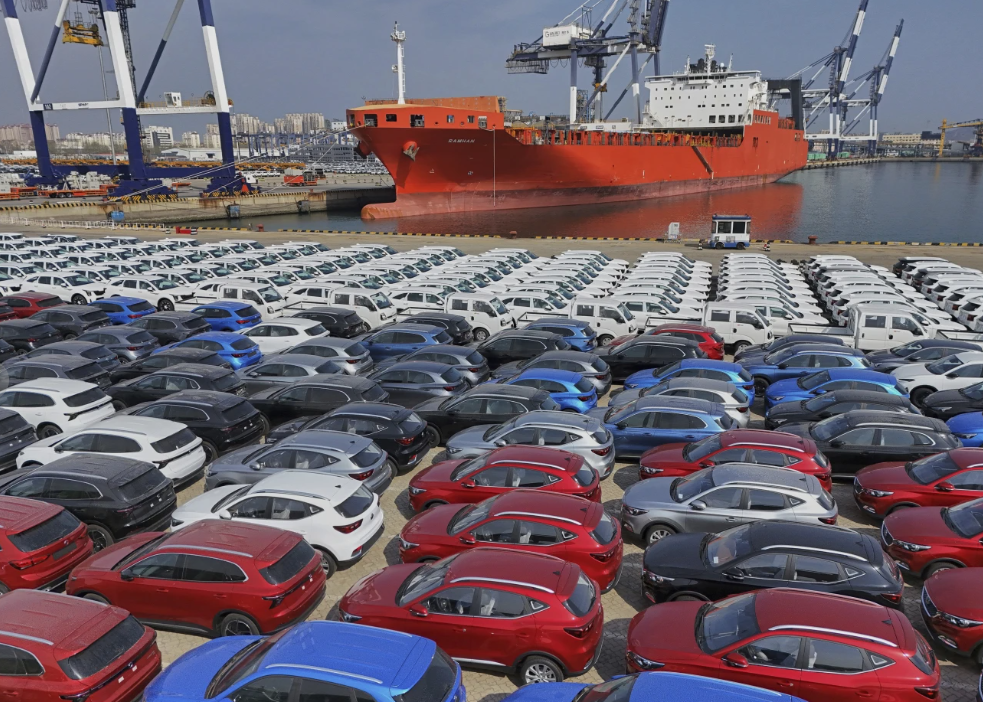China announced on Friday that it will impose a 34% tariff on all U.S. imports starting April 10. This move is part of a series of retaliatory actions following U.S. President Donald Trump’s introduction of a new round of double-digit tariffs, which he referred to as “Liberation Day” measures.
The new tariff rate aligns with the 34% “reciprocal” tariff that the U.S. recently imposed on Chinese goods. In addition to the tariffs, China’s Commerce Ministry revealed plans to tighten export controls on rare earth materials, crucial for high-tech products like computer chips and electric vehicle batteries. This includes stricter regulations on samarium and its compounds, used in aerospace and defense, as well as gadolinium, which is used in MRI scans.
China’s customs authorities also announced the suspension of chicken imports from certain U.S. suppliers due to the detection of furazolidone, a banned drug in China. Furthermore, issues such as high mold levels in sorghum and salmonella in poultry meat were identified in shipments from specific companies. This affects one sorghum exporter, C&D Inc., and four poultry companies.
In addition, China has added 27 companies to its list of firms facing trade sanctions or export restrictions. Among them are High Point Aerotechnologies, a defense technology firm, and Universal Logistics Holding, a publicly traded transportation and logistics company.
China also filed a complaint with the World Trade Organization, arguing that the U.S.’s “reciprocal tariffs” violate WTO rules, harm legitimate trade interests, and undermine the global economic and trade system. The Chinese government criticized the U.S. for engaging in unilateral trade practices that destabilize international commerce.
Other measures include an anti-monopoly investigation into DuPont China Group, a subsidiary of the multinational chemical giant, and an anti-dumping investigation targeting X-ray and CT scanner tubes imported from the U.S. and India.
Earlier this year, China had already imposed a 15% tariff on U.S. coal and liquefied natural gas, along with a 10% tariff on crude oil, agricultural machinery, and large-engine vehicles.
The escalating trade tensions have affected numerous U.S. companies, with many facing restrictions on trade and investment. Similarly, several Chinese firms face limits on their business dealings with U.S. counterparts.
While trade relations are strained, diplomatic channels remain open. U.S. and Chinese military officials met recently for the first time since Trump’s inauguration to discuss maritime safety, aiming to reduce the risk of military conflicts.














